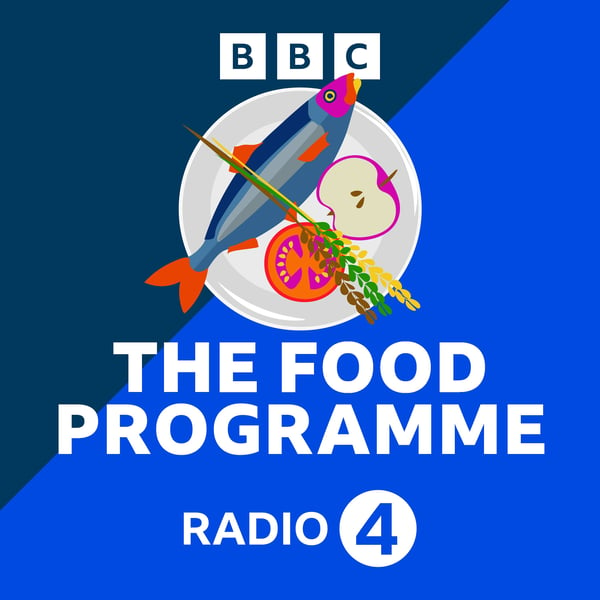Genome editing and the future of food
The Food Programme
BBC
4.4 • 943 Ratings
🗓️ 7 March 2021
⏱️ 30 minutes
🧾️ Download transcript
Summary
Dan Saladino looks at the future role of genome editing in food and farming. A public consultation is underway on technologies such as CRISPR. What could it mean for farmers and consumers?
Unlike transgenic technologies (in which DNA is moved from one species to another), genome editing can be used to create changes to the DNA of plants and animals within a species. Helping to explain how the technology works is a plant biologist working at Cold Spring Harbour in the United States, Zach Lippman. He's using CRISPR to create new types of tomato plants, some of which are higher yielding, more compact and better suited to urban agriculture. Meanwhile, Dr Mike McGrew, a molecular biologist based at the Roslin Institute in Scotland describes how genome editing might help result in future breeds of chickens that are completely resistant to avian influenza, a serious problem for all forms of poultry production.
The public consultation has been prompted by the UK government's desire to change the legal status of genome editing. At present, because of a decision by the European Court of Justice back in 2018, the technology is as strictly regulated as all other forms of genetic modification. Brexit makes it possible to diverge from the EU's position.
Lawrence Woodward of the campaign group Beyond GM has concerns over the process. For such a powerful technology, one that could potentially transform the future of food and farming, he argues we need a much bigger public debate. Farmer Guy Watson of Riverford Organic and Philip Lymbery of Compassion in World Farming both fear the technology will result in more intensive, industrial forms of production. Gideon Henderson, DEFRA's Chief Scientific Adviser gives his response.
Produced and presented by Dan Saladino.
Transcript
Click on a timestamp to play from that location
| 0:00.0 | You don't need us to tell you there's a general election coming. |
| 0:04.7 | So what does it mean for you? |
| 0:06.7 | Every day on newscast we dissect the big talking points, the ones that you want to know more about. |
| 0:12.4 | With our book of contacts, we talk directly to the people you want to hear from. |
| 0:16.8 | And with help from some of the best BBC journalists, |
| 0:19.5 | we'll untangle the stories that matter to you. |
| 0:23.4 | Join me, Laura Kunsberg, Adam Fleming, Chris Mason, |
| 0:26.6 | and Patty O'Connell for our daily podcasts. |
| 0:29.4 | Newscast, listen on BBC Sounds. Hello, you've downloaded a podcast of BBC Radio Falls The Food Programme. |
| 0:38.0 | I'm Dan Saladino. |
| 0:40.0 | Welcome to our world. |
| 0:41.0 | From cooking to culture, politics to pleasure. We hope you enjoy this |
| 0:46.3 | addition. Life is complicated. By that I mean the genetic makeup of every organism on Earth is mind-boggling. |
| 0:55.0 | However, in the space of just a few decades, we've been able to more fully explore genomes and then change them. |
| 1:03.0 | And more recently, a form of technology has been developed |
| 1:07.0 | which is described as having the potential to transform |
| 1:10.0 | not only the future of medicine, but also food and farming. |
| 1:15.0 | CRISPR is an acronym that stands for clusters of regularly interspaced short palindromic repeats. |
| 1:22.0 | Biochemist Jennifer Dowdner who based short palindromic repeats. |
| 1:22.8 | Biochemist Jennifer Dowdner, who received a Nobel Prize last year for her work |
| 1:27.5 | on the development of CRISPR-CAS-9, a pioneering approach to genome editing. We've known about these repeat sequences for decades, |
| 1:35.9 | but it's only in recent years. Scientists have been able to use RNA molecules and a protein, which is the cast 9 bit, to more accurately and more easily target and edit DNA. |
... |
Please login to see the full transcript.
Disclaimer: The podcast and artwork embedded on this page are from BBC, and are the property of its owner and not affiliated with or endorsed by Tapesearch.
Generated transcripts are the property of BBC and are distributed freely under the Fair Use doctrine. Transcripts generated by Tapesearch are not guaranteed to be accurate.
Copyright © Tapesearch 2025.

